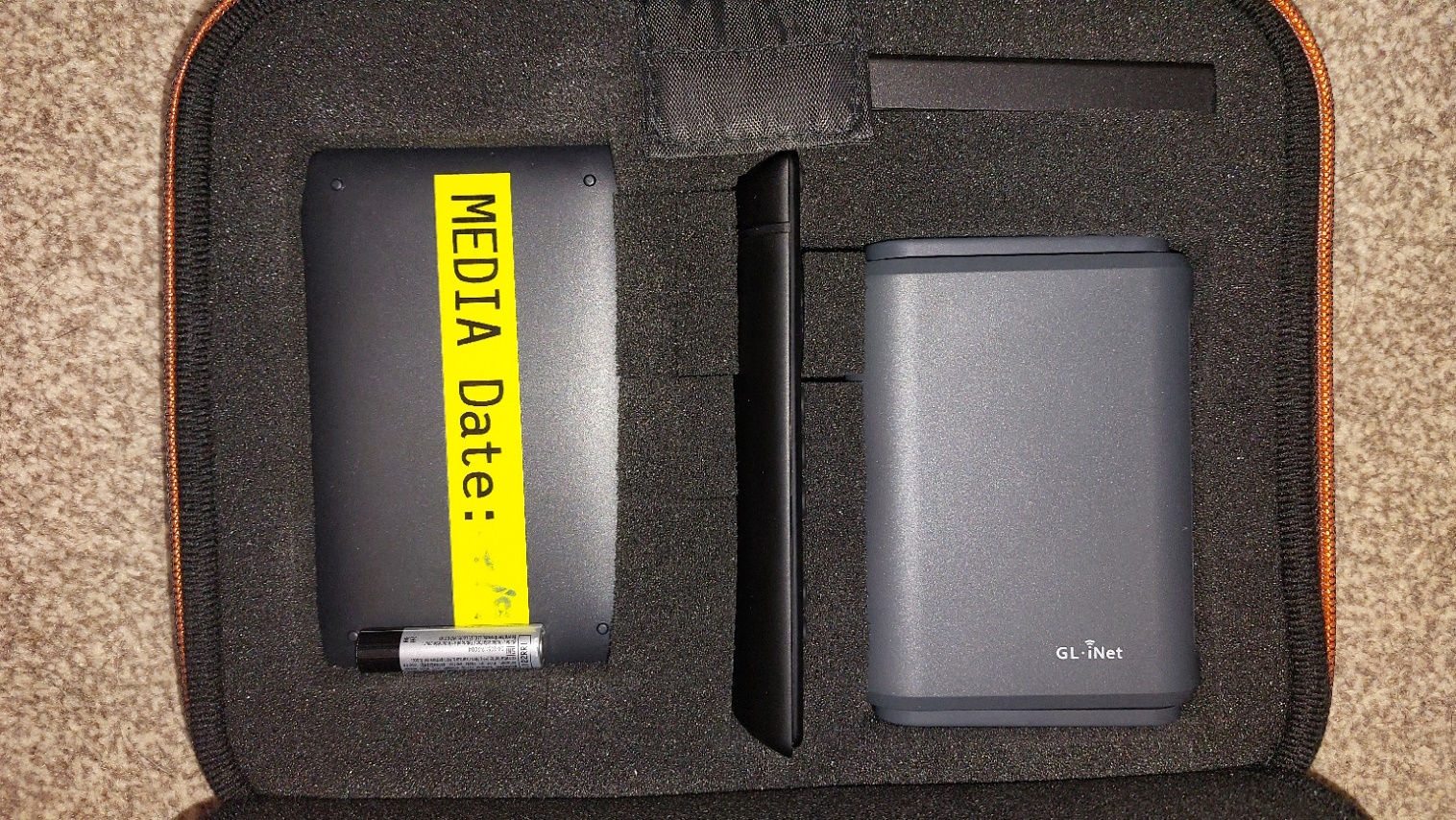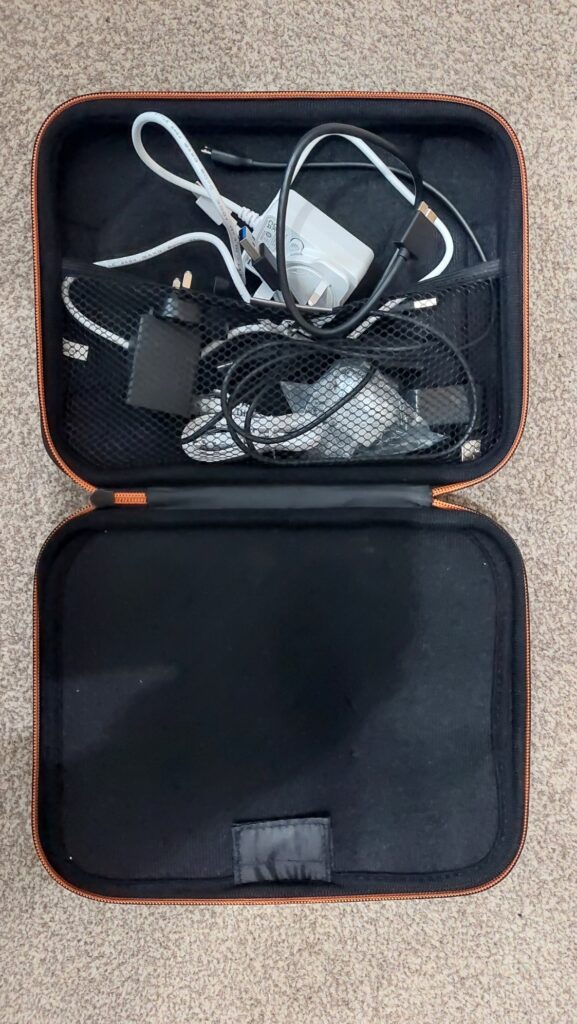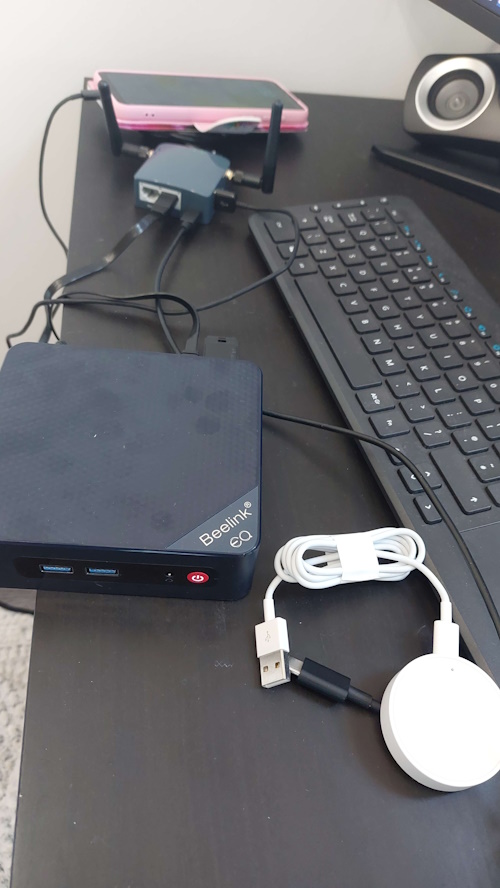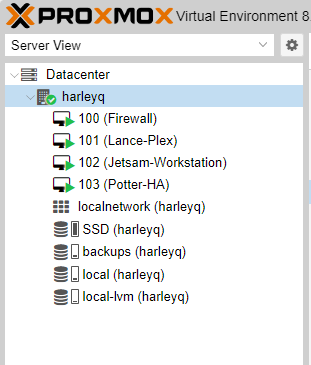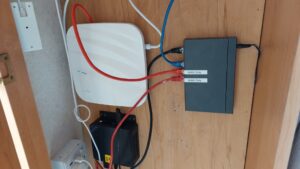OVH weird Grub / EFI custom setup issues - Proxmox
After a recent PVE 8 to 9 upgrade I experienced some boot issues with OVH/SYS/KI servers. It turns out that OVH do some weird stuff with boot disks in the initial setup. The issue and fix is discussed in more detail in the following proxmox post, but I wanted to copy the scripts here in case the forum ever disappears.
This script written by a very kind engineer at OVH fixes the sync issue for a one off fix when grub is updated.
While this fixes the immediate issue, it does nothing to put a permanent fix in place. OVH are rolling out a new config for new builds that doesn’t experience the issue, so the easiest fix is to rebuild your dedicated server, however, if this isn’t for you the same engineer wrote the following to put the server into a more standard configuration.#!/bin/bash set -euo pipefail overall_newest_mtime=0 while read -r partition; do mountpoint=$(mktemp -d) mount "${partition}" "${mountpoint}" newest_mtime=$(find "${mountpoint}" -type f -printf "%T@\n" | cut -d. -f1 | sort -n | tail -n1) if [[ $newest_mtime -gt $overall_newest_mtime ]]; then overall_newest_mtime=${newest_mtime} newest_esp=${partition} echo "${partition} is currently the newest ESP with a file modified at $(date -d @"${newest_mtime}" -Is)" fi umount "${mountpoint}" rmdir "${mountpoint}" done < <(blkid -o device -t LABEL=EFI_SYSPART) newest_esp_mountpoint=$(mktemp -d) mount "${newest_esp}" "${newest_esp_mountpoint}" while read -r partition; do if [[ "${partition}" == "${newest_esp}" ]]; then continue fi echo "Copying data from ${newest_esp} to ${partition}" mountpoint=$(mktemp -d) mount "${partition}" "${mountpoint}" rsync -ax "${newest_esp_mountpoint}/" "${mountpoint}/" umount "${mountpoint}" rmdir "${mountpoint}" done < <(blkid -o device -t LABEL=EFI_SYSPART) umount "${newest_esp_mountpoint}" rmdir "${newest_esp_mountpoint}" echo "Done synchronizing ESPs"
#!/bin/bash
# DISCLAIMER:
# This script is provided "as is" with no guarantees. Use at your own risk.
# The author takes no responsibility for any data loss, system breakage,
# or other damage that may occur from running it.
set -euo pipefail
ESP_BACKUP_PATH="/root/efi_system_partition_data"
### Ensure required commands are installed
for command in mkfs.vfat rsync; do
if ! command -v "${command}" >&/dev/null; then
echo "Could not find ${command}, make sure it is installed" >&2
exit 1
fi
done
### Ensure LABEL=EFI_SYSPART returns something
if [[ ! $(blkid -o device -t LABEL=EFI_SYSPART) ]]; then
echo "LABEL=EFI_SYSPART returned nothing, aborting" >&2
exit 1
fi
# Exit if the ESP is already over RAID1
if [[ $(blkid -o device -t LABEL=EFI_SYSPART | xargs lsblk -ndo TYPE) == raid1 ]]; then
echo "The ESP is already over RAID1, nothing to do"
exit 0
fi
### Ensure LABEL=EFI_SYSPART only points to partitions and not a broken mix of part/raid1
if [[ $(blkid -o device -t LABEL=EFI_SYSPART | xargs lsblk -ndo TYPE | sort -u) != part ]]; then
echo "LABEL=EFI_SYSPART returns multiple device types, aborting" >&2
exit 1
fi
### Don't do anything if there is only one ESP
if [[ $(blkid -o device -t LABEL=EFI_SYSPART | wc -l) == 1 ]]; then
echo "Only one ESP, nothing to do"
exit 0
fi
### Unmount /boot/efi
if mountpoint -q /boot/efi; then
umount "/boot/efi"
echo "Unmounted /boot/efi"
# If the script is running on the installed OS (not on a rescue system), we
# need to unmount /boot/efi and remount it at the end of the script
esp_mountpoint=/boot/efi
else
# If the script is running on a system where /boot/efi is not mounted, it's
# likely a rescue system so we'll use a temporary mountpoint
esp_mountpoint=$(mktemp -d)
fi
### Find the newest ESP
overall_newest_mtime=-1
while read -r partition; do
mountpoint=$(mktemp -d)
mount -o ro "${partition}" "${mountpoint}"
newest_mtime=$(find "${mountpoint}" -type f -printf "%T@\n" | cut -d. -f1 | sort -n | tail -n1)
if [[ ${newest_mtime} -gt ${overall_newest_mtime} ]]; then
overall_newest_mtime=${newest_mtime}
newest_esp=${partition}
fi
umount "${mountpoint}"
rmdir "${mountpoint}"
if findmnt --source "${partition}" >/dev/null; then
echo "${partition} is still mounted somewhere, aborting" >&2
exit 1
fi
done < <(blkid -o device -t LABEL=EFI_SYSPART)
echo "${newest_esp} is the newest ESP with a file modified at $(date -d @"${overall_newest_mtime}" -Is)"
### Copy ESP contents
newest_esp_mountpoint=$(mktemp -d)
mount -o ro "${newest_esp}" "${newest_esp_mountpoint}"
mkdir -p "${ESP_BACKUP_PATH}"
rsync -aUx "${newest_esp_mountpoint}/" "${ESP_BACKUP_PATH}/files/"
echo "Copied newest ESP contents to ${ESP_BACKUP_PATH}/files/"
umount "${newest_esp_mountpoint}"
rmdir "${newest_esp_mountpoint}"
### Back up and wipe ESPs
partitions=()
while read -r partition; do
backup_file="${ESP_BACKUP_PATH}/$(basename "${partition}")"
# Create a full backup of the ESP, this uses roughly 511 MiB per ESP
dd if="${partition}" of="${backup_file}" status=none
echo "Backed up ${partition} as ${backup_file}"
echo "Wiping signatures from ${partition}"
wipefs -aq "${partition}"
echo "Wiped signatures from ${partition}"
partitions+=("${partition}")
done < <(blkid -o device -t LABEL=EFI_SYSPART)
### Create ESP over RAID1
# Prefer md0 if possible
if [[ ! -e /dev/md0 ]]; then
md_number=0
else
highest_md_number=$(find /dev/ -mindepth 1 -maxdepth 1 -regex '^/dev/md[0-9]+$' -printf "%f\n" | sed "s/^md//" | sort -n | tail -n 1)
md_number=$((highest_md_number + 1))
fi
raid_device="/dev/md${md_number}"
echo "Creating RAID1 device ${raid_device}"
# With metadata version 0.90, the superblock is located at the end of the partition, so the firmware sees it as a normal FAT filesystem
# https://archive.kernel.org/oldwiki/raid.wiki.kernel.org/index.php/RAID_superblock_formats.html
mdadm --create --verbose "${raid_device}" --level=1 --metadata=0.90 --bitmap=internal --raid-devices="${#partitions[@]}" "${partitions[@]}"
echo "Creating FAT filesystem on ${raid_device}"
mkfs.vfat -n EFI_SYSPART "${raid_device}" >/dev/null
mount "${raid_device}" "${esp_mountpoint}"
echo "Copying ESP contents to ${raid_device} mounted on ${esp_mountpoint}"
rsync -aUx "${ESP_BACKUP_PATH}/files/" "${esp_mountpoint}/"
echo "The ESP is now over RAID1:"
lsblk -s "${raid_device}"
if [[ ${esp_mountpoint} != /boot/efi ]]; then
echo "Unmounting ${esp_mountpoint}"
umount "${esp_mountpoint}"
rmdir "${esp_mountpoint}"
fi
echo "Script completed successfully, please check the /boot/efi entry in /etc/fstab, update mdadm.conf and rebuild the initramfs"
Source: Convert EFI System Partitions to RAID1 on OVHcloud bare-metal servers · GitHub 

